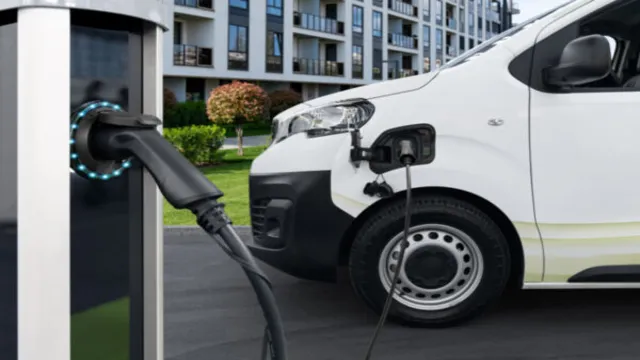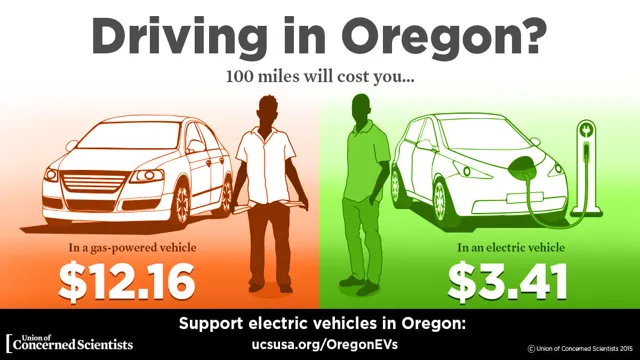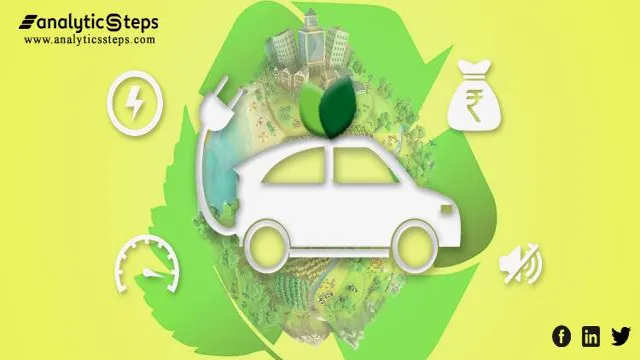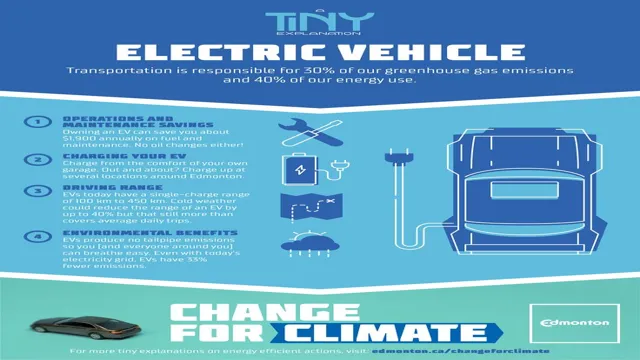10 Surprising Benefits of Using Electric Cars – Everything You Need to Know
Electric cars are often touted as the future of transportation and a sustainable alternative to gasoline-powered vehicles. While their eco-friendliness is undeniable, the benefits of electric cars go beyond just being kinder to the environment. With the growing demand for sustainable technology, electric cars have come a long way, and modern advancements have made them more efficient, convenient, and affordable.
From lower maintenance costs to improved performance, electric cars offer a range of benefits that make them a practical choice for modern drivers. In this blog, we will delve deeper into the benefits of electric cars and what makes them a superior choice in more ways than one. So, buckle up and let’s take a ride through the world of electric cars.
Cost Savings
Did you know that switching to an electric car can save you money on both fuel and maintenance costs? Unlike traditional fuel-powered cars that require regular oil changes, tune-ups, and other costly repairs, electric cars use a simple and efficient battery-powered system that requires minimal maintenance. Additionally, the cost of charging an electric car is typically much lower than the cost of filling up a gas tank, especially if you use off-peak electricity rates or renewable energy sources like solar power. Over time, these cost savings can add up significantly, making electric cars an attractive option for budget-conscious drivers.
So not only do electric cars offer environmental benefits, but they can also save you money in the long run. What are you waiting for? Make the switch to an electric car today and start enjoying the many benefits it has to offer!
Lower Fuel and Maintenance Costs
As gas prices continue to fluctuate and maintenance costs rise, one of the biggest advantages of turning to electric cars is the lower fuel and maintenance expenses. With an electric vehicle, you can say goodbye to the constant visits to the gas station, as they don’t require any traditional fuel. Charging at home or in public stations is a much cheaper alternative, which can offer significant savings in the long run.
Furthermore, electric cars don’t need oil changes or new spark plugs, as they have far fewer moving parts and require less maintenance overall. This means that you can enjoy significant cost savings throughout the life of your vehicle, making it a smart long-term investment. So, if you’re looking for a practical and cost-effective solution to reduce your fuel and maintenance expenses, an electric vehicle may be the right choice for you.

Tax Credits and Rebates
Tax credits and rebates can be a great way to save on your expenses. These incentives are offered by federal, state, and local governments for a variety of reasons, such as encouraging energy-efficient upgrades or promoting renewable energy. The key to taking advantage of them is to understand what you are eligible for and how to apply for them.
For instance, the federal government offers a tax credit for installing solar panels on your home. Likewise, some states and utility companies offer rebates for purchasing energy-efficient appliances or upgrading your HVAC system. These incentives can add up quickly and help you reduce your energy bills over time.
So, if you’re looking to save money, don’t overlook the potential benefits of tax credits and rebates. It can be worthwhile to do some research and explore your options.
Environmental Benefits
Electric cars are gaining popularity for many reasons, but one of the most significant benefits is their positive impact on the environment. Unlike traditional gasoline-powered cars, electric cars do not produce emissions, which means they do not contribute to air pollution and the greenhouse effect. Not only is this good for our planet, but it also reduces our dependence on non-renewable resources.
Additionally, electric cars are much quieter than their gas-powered counterparts, which means less noise pollution in our communities. When considering the long-term benefits, it’s clear that electric cars are a smart choice for both consumers and the environment. At the end of the day, making the switch to electric cars can be a small yet impactful step towards a more sustainable future.
Reduced Carbon Emissions
Reduced carbon emissions are a critical step in mitigating the negative impact of human activities on the environment. By reducing carbon emissions, we lower the amount of greenhouse gases released into the atmosphere, reducing air pollution and decreasing the severity of climate change. This reduction in carbon emissions can have numerous positive effects on the environment, including improving air quality and reducing the incidence of respiratory and cardiovascular diseases caused by pollution.
Furthermore, by reducing our dependence on fossil fuels, we can decrease our risk of oil spills and other environmental disasters, protecting marine environments and wildlife populations. Making a conscious effort to reduce our carbon footprint can have a significant impact on preserving our planet for future generations. It’s essential that we all take steps to reduce our carbon emissions, from driving less and using public transportation to recycling and using energy-efficient appliances.
Reduced Air Pollution
Reduced air pollution is one of the biggest environmental benefits that we can achieve through sustainable practices. It is no secret that air pollution has a detrimental effect on our health and the environment. By reducing the amount of harmful gases and toxins released into the air, we can improve the quality of air we breathe, protect wildlife, and mitigate the effects of climate change.
When we take public transportation, bike, or walk instead of driving alone, we are helping to reduce the number of vehicles on the road and, therefore, the amount of emissions released into the atmosphere. Additionally, using energy-efficient appliances and turning off devices when not in use helps to reduce the energy demand and, consequently, the amount of pollution caused by energy generation. By taking small actions every day, we can make our communities cleaner, healthier, and livable for generations to come.
Reduced Noise Pollution
Reduced Noise Pollution Main Sub-heading: Environmental Benefits Reducing noise pollution can have many positive environmental benefits that improve the quality of life for people and animals. Constant exposure to excessive noise can cause health problems such as stress, high blood pressure, and hearing damage. Additionally, it can disrupt sleep patterns, disturb concentration, and even affect productivity.
Reducing noise pollution can help mitigate these negative effects, resulting in healthier, happier individuals. Furthermore, animals’ habitats are often threatened by human-generated noise. Migratory birds, for example, rely on hearing to navigate and communicate with each other.
Excessive noise pollution can disrupt their patterns and lead to disorientation, making it harder for them to find food and mates. Reducing noise pollution can also improve the auditory and social development of marine animals, such as fish and whales, that rely on sound to communicate. Overall, reducing noise pollution not only improves human health, but it also helps restore balance to ecosystems and benefit the environment.
Convenient and Efficient
Electric cars are becoming more popular by the day, and for good reason. One of the key benefits of using an electric car is the convenience it offers. These cars can be charged at home, work, or in public charging stations, saving you time and hassle.
Unlike gas cars, you won’t have to make frequent trips to the gas station. The efficiency of electric cars is also a major advantage. Since they run on electricity, they are much cheaper to operate than gas cars.
Additionally, they are much better for the environment, emitting far less pollution than traditional cars. With electric cars, you can enjoy the convenience and efficiency of driving a car, while also reducing your carbon footprint and saving money in the process. It’s a win-win situation!
Instant Torque
Electric vehicles (EVs) are becoming increasingly popular due to their efficient use of energy and zero emissions. But what sets them apart from traditional gasoline cars is their instant torque. This means that EVs can accelerate quickly and smoothly from a stop, without any delay.
In comparison, traditional cars need to rev up their engines to build torque, which can take a few seconds. Not only is this convenient for the driver, but it also saves energy as the EV doesn’t waste energy building up torque. Plus, EVs have the ability to recover energy through regenerative braking, which converts the car’s kinetic energy into electrical energy as it slows down or stops, further increasing efficiency.
All in all, instant torque makes driving an EV a unique and seamless experience that is both convenient and environmentally friendly.
Regenerative Braking System
Regenerative braking systems are becoming increasingly popular these days, as they offer drivers a more convenient and efficient way of braking. This technology works by harnessing kinetic energy from the vehicle’s motion and converting it into electrical energy, which is then stored in the vehicle’s battery. This process not only saves energy, but it also reduces wear and tear on the brakes, making them last longer.
The regenerative braking system can be used in a variety of vehicles, including electric cars, hybrid cars, and even bicycles. By using this advanced technology, drivers can stop their vehicles more smoothly and effectively, which enhances their driving experience. Moreover, regenerative braking systems also help to reduce greenhouse gas emissions, making them an eco-friendly choice for the environmentally-conscious driver.
Overall, regenerative braking systems are a great way to maximize efficiency and minimize harm to the environment.
Future-Proof Benefits
Electric cars come with a plethora of benefits, making them a future-proof choice for anyone looking to reduce their carbon footprint. First and foremost, electric cars are much cleaner and quieter than their traditional gasoline counterparts. They emit no emissions, creating a significant reduction in air pollution, which is known to have adverse effects on human health.
Moreover, the maintenance of electric cars is much lower than conventional cars, with fewer moving parts and fewer fluids, making maintenance less frequent and cheaper. In the long run, electric cars can save drivers a lot of money on fuel costs, which can be significant over time. Therefore, electric cars use benefits that are not only environmentally friendly but also practical and cost-effective.
Conclusion
In conclusion, electric cars are not just a buzzword or passing trend – they offer real benefits to both the environment and the driver. Driving an electric car can greatly reduce emissions and contribute to a greener future. Additionally, electric cars are often cheaper to maintain and operate in the long run, providing a financial incentive for switching to electric.
So, whether you’re looking to save the planet or your wallet (or perhaps both), it’s clear that electric cars are a smart choice for the modern driver. So why not go green and join the charge towards a brighter, cleaner future?”
FAQs
What are the benefits of using an electric car?
Electric cars are environmentally friendly, have better fuel efficiency, and are cheaper to maintain than traditional cars.
How do electric cars work?
Electric cars run on a rechargeable battery that powers an electric motor, which turns the car’s wheels.
Can electric cars save money?
Yes, electric cars are cheaper to operate and maintain than traditional cars. Additionally, many governments offer incentives or tax breaks for purchasing an electric car.
How long does it take to charge an electric car?
The time it takes to charge an electric car varies based on the battery size and charging speed of the charger being used. On average, it takes 4-8 hours to charge an electric car using a standard home outlet.





